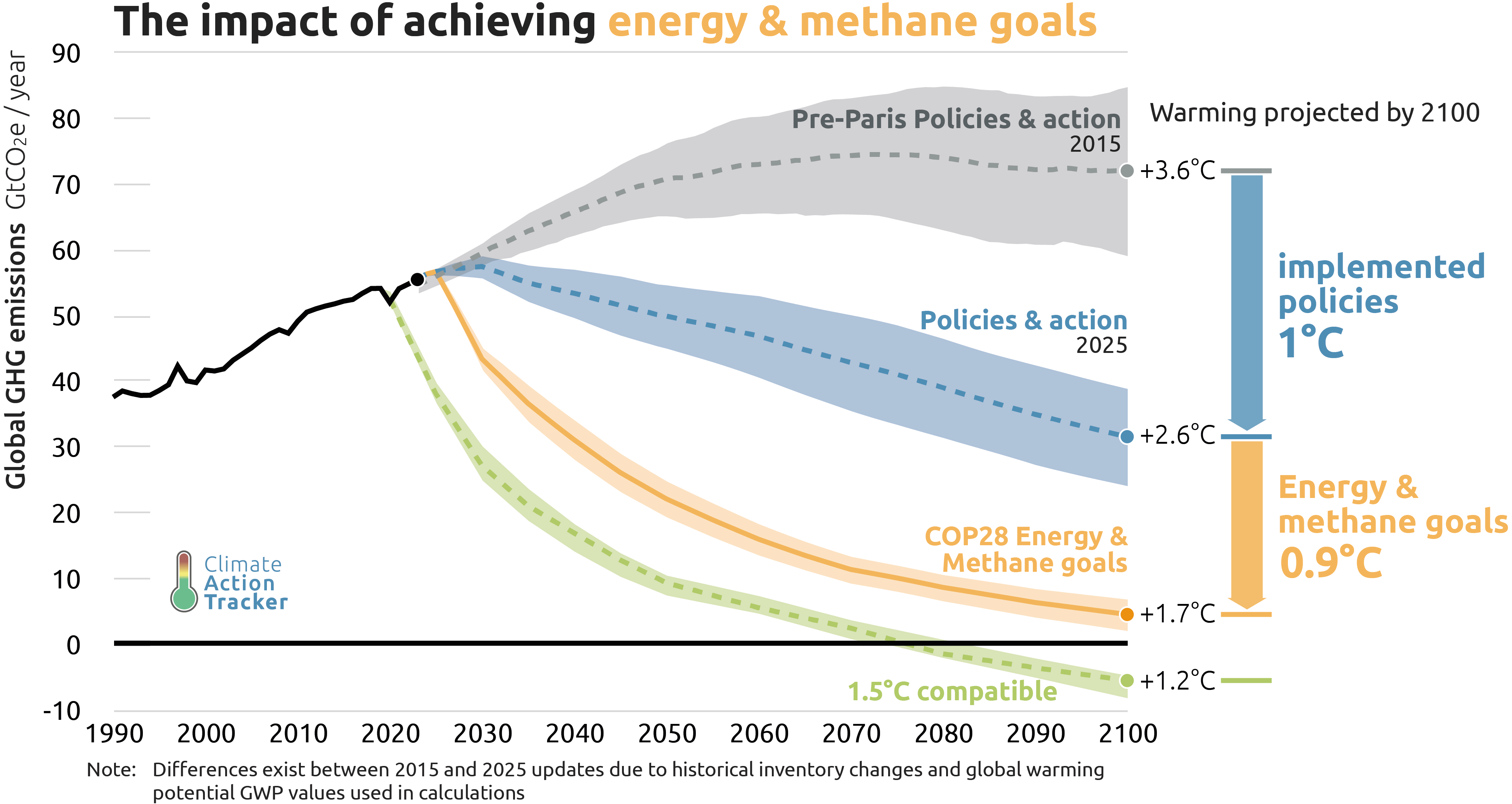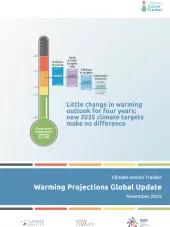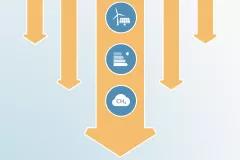At COP 28 in Dubai, 2023, as part of the first Global Stocktake (GST1) discussion, the world’s governments negotiated and agreed a clear set of 2030 energy and methane goals that aligned with limiting warming to 1.5°C. These included tripling renewable energy capacity, doubling the rate of energy efficiency improvements, and cutting methane emissions.
In this Climate Action Tracker analysis, we show for the first time the huge climate benefits if governments were to implement what they have negotiated and agreed for these three critical energy and methane goals. We evaluate the global benefits of governments taking concerted action to deliver on the goals by 2030 and 2035, both in terms of emission trajectories and warming implications.
Key findings:
- Tripling renewables, doubling energy efficiency and cutting methane by 2030 and beyond would cut warming rate by a third in ten years, and halve it by 2040.
- It would cut projected warming this century significantly (about 0.9˚C from 2.6˚C to 1.7˚C).
- Scaled up financial support to achieve this will be needed for many poorer countries.
- Rapidly reducing the rate of warming is critical for adaptation.
This analysis underscores a clear imperative: the accelerated expansion of renewable energy, expansion of electrification and the associated phase-out of fossil fuels are indispensable to achieving the Paris goal. Delivering on these agreed targets would not only narrow the emissions gap but also lay the foundation for a resilient, low-carbon global economy. The action agenda of the COP30 Presidency represents a key space to mobilise commitment in the delivery of these goals.
Figure 1: The impact of achieving energy and methane goals on global greenhouse gas emissions.
If the G20 were to implement the three goals...
Our assessment of the emissions impact of achieving the three energy and methane goals agreed at COP28 builds on a country level analysis of the G20, where the EU is treated as one geography. The briefing document includes country factsheets that provide results for each of the G20 geographies.









